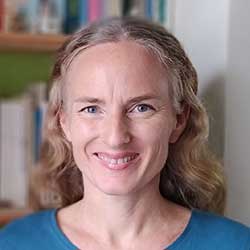-
ML-102
Reel Lives: Framing the Human Condition in European Film
Since its earliest days, cinema has had the power to illuminate the complexities of the human experience. Building on this foundation, you will examine how European filmmakers portray the struggles, triumphs, and defining moments of their films¿ characters, as well as the influence those films exert on you, the audience, within a wider cultural, social and political context. Through a selection of visually striking and emotionally resonant films, you will explore the cinematic techniques that bring these stories to life, offering insight into the human condition and contemporary debate about what it means to be European in the 21st Century. In so doing, this module asks you to reflect on that most fundamental question: what does it mean to be human?
-
ML-203
Reel Lives: Framing the Human Condition in European Film
Since its inception, cinema has had the power to illuminate the complexities of the human experience. Building on this foundation, this module¿will examine how European filmmakers portray the struggles, triumphs, and defining moments of their films¿ characters, as well as the influence those films exert on individual viewers within a wider cultural, social and political context. Through a selection of visually striking and emotionally resonant films, we will explore the cinematic techniques that bring these stories to life, offering insight into the human condition and what it means to be European in the 21st Century. In so doing, the module seeks to explore that most fundamental question: what does it mean to be human?
-
ML-320
Modern Languages Dissertation Preparation
This module introduces you to the practice of research and dissertation writing in the field of Modern Languages and will guide you in the first part of your dissertation preparation.
Areas covered include: selecting a relevant topic, asking relevant research questions, preparing and writing up a literature review, preparing and writing up a research proposal, research methods and library research tools, making use of foreign-language sources, structuring your dissertation, analysis and argumentation, compiling a bibliography.
In addition to lectures and seminars, you will have three meetings with your supervisor. By the end of the module you will have developed your dissertation topic, know what methodology you will use and have acquired knowledge of how to organise and lay out your dissertation.
Assessment for the module consists of a literature review, a research proposal and a presentation.
-
MLF220
Paris
The capital city of France is renowned as the capital of the nineteenth century, the arts and modernity. This module will introduce you to the unique cultural environment of Paris, and you will analyse its evolution from the nineteenth century to the present day. The main focus of the module will be the images of the city as mediated in fiction, art and iconography, architecture, music and film. The module explores the changing urban environment in Paris and its adjacent suburbs, from Baron Haussmann's controversial infrastructure projects in the nineteenth century, to the post-war construction of the HLM in the banlieues, to the twentieth-first century. The module will also examine the reputation of Paris as the capital of romance and its contemporary status as a multicultural metropolis.
-
MLT207
Dialogue Interpreting
This module, which builds on the introduction to Interpreting provided in Year 1 by MLT100 Concepts in Translation and Interpreting, will develop practical strategies and techniques for performing Dialogue Interpreting between parties who do not speak each other's language, as well as oral translation of relevant documents at sight. There will typically be a mixture of short lectures on relevant aspects of Interpreting Theory (especially professional ethics), live bilingual and multilingual scenarios, and language laboratory practical sessions in preparation for assessment. The assessment will be two Sight Translations, one in each direction (40%) and one Dialogue Practical Class Test (both directions) in the Lab (60%). A wide range of materials will be available on Blackboard to practice sight translation and interpreting in your own time.
-
MLT330
Interpreting - Local Government Option
This module will develop strategies and techniques to perform sight translation and dialogue (or bilateral consecutive) interpreting in the context of Local Government, covering a selection of topics in the areas of council services, social services, environmental health, and education. There will be lectures/workshops on voice confidence, note-taking, and ethics, and practical sessions (live sessions and language laboratory sessions using the latest technology) to enhance your learning. A range of materials will be made available on Canvas to practice the different modes of interpreting in your own time.
This module will also prepare you for the Diploma in Public Service Interpreting, examined by the Chartered Institute of Linguists (CIoL). This is optional and takes place in June every year (registration by February; CIoL fee applies).
-
MLTM07
Healthcare Interpreting
Healthcare interpreting plays an essential role in facilitating communication between healthcare providers and patients who speak different languages or have limited proficiency in the language used by the provider, thus ensuring that all patients have access to the medical information and services they need.
Healthcare interpreters work in various settings, including doctor¿s offices, hospitals, clinics, and mental health facilities, and they require a sound knowledge of medical terminology in both languages, as well as a good understanding of cultural differences that might affect communication in order to interpret accurately and in a culturally appropriate way.
In this module you will develop strategies and techniques to perform simultaneous whispering interpreting and dialogue interpreting (including some telephone interpreting, plus an opportunity to try sight translation) in the domain of healthcare. There will be a mixture of interactive lectures on interpreting theory, ethics, and practice, together with live and language laboratory practice sessions on the topic of various conditions and diseases.
-
MLTM25
Conference Interpreting
This module will help students develop strategies and techniques to perform Conference Interpreting in Consecutive as well as Simultaneous modalities, with a focus on the latter. It involves the advanced development of multilingual skills, as well as interpersonal/intercultural communication skills (active listening, memory retention, time lag, anticipation, reformulation, delivery). Students will typically be exposed to authentic talks, lectures, conference papers, debates and speeches delivered by United Nations delegates, European Parliamentarians, TED.com Presenters, the UK's Political Speech Archive, BBC World programmes, YouTube, The Why Channel, and other countries' politicians, lecturers and experts in various fields. The contexts would typically include current affairs and topics of political, sociocultural, economic, scientific, technological and environmental impact in both cultures and their corresponding terminologies. Students will also be encouraged to research and read parallel texts for confidence building knowledge expansion and glossary creation. Training will take place in a fully-equipped Interpreting Suite (delegate units and booths).
Successful candidates will be well prepared to apply for placement opportunities at the European Commission Directorate-General for Interpretation and/or The Internship Programme at the United Nations Offices either in Geneva or in New York.
Students will be expected to do extensive guided private study, which should include exercises, e.g. mental agility exercises, bi-directional clozing, numerical contextualization and simplification tasks, reformulation and improvisation exercises, as well as tasks for mnemonic activation (to activate and automatize linguistic reflexes through the use of synonyms, antonyms, definitions, paraphrasing, hypernyms etc.).
-
MLTM91
Semester Abroad - UGA (Grenoble)
This module is only available to students who have successfully completed Year 1 of the Extended MA Professional Translation / Translation & Interpreting- Grenoble 2-year Programme. This module, which is taken alongside the TB2 equivalent, is made up of approved modules totalling 30 ECTS (approx.) selected from the portfolio offered by the host institution, the Department of Foreign Languages at Université Grenoble-Alpes (UGA), France. This partner is responsible for all teaching and assessment. Module marks are returned to Swansea, converted, weighted proportionally to credit and combined into a single composite mark for this Swansea 'wrapper' module.
-
MLTM91A
Semester Abroad - UGA (Grenoble)
This module is only available to students who have successfully completed Year 1 of the MA Professional Translation (Extended) or MA Translation & Interpreting (Extended), or the Grenoble 2-year programmes. This module is made up of approved modules totaling 30 ECTS selected from the portfolio offered by the host institution, the Department of Foreign Languages at Université Grenoble-Alpes (UGA), France. This partner is responsible for all teaching and assessment. Module marks are returned to Swansea, converted, weighted proportionally to credit and combined into a single composite mark.


